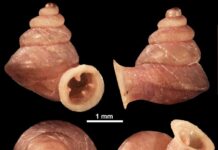
BY AZMAN ZAKARIA
SERDANG: Universiti Putra Malaysia (UPM) researchers, along with their research partners, have succeeded in developing Maceration Induced Cell Rupturing Oil Nut Extraction Synthesis (MICRONES), a new technology to help overcome the problem of loss of crude palm oil during extraction process.
MICRONES will change the extraction process of crude palm oil (CPO) and kernels from a cost-consuming process to one that will bring about profits, thereby reducing losses suffered by oil palm mills.
MICRONES came about through the combination of two research projects ‘Kernel Nut and Mesocarp Separation System by Prof Dr RubiahYunus from the Department of Chemical & Environmental Engineering), Faculty of Engineering, UPM, and ‘System for Continuous Extraction of Pericarp Liquid by Gregory L.Foster, from Fibaloy International Sdn Bhd.
This system can replace the traditional grinding method of producing palm oil and kernels for a better one and of quality.
Not only the technology can reduce losses of between 0.5 and 0.7 per cent in oil extraction rate (OER) and 15 to 20 per cent of kernels during extraction but it is also able to add back 0.35 per cent to the OER and 15 percent to the kernels.
Rubiah said extraction process is critical in every palm oil mill due to inefficient technology that could result in loss of high quantity of palm oil.
“MICRONES technology proves to be a vital discovery for the palm oil industry. In 2016, palm oil production went down to 0.35 per cent in OER. This caused Malaysia and Indonesia, both of which are palm oil producers, to unnecessarily open up 250,000 hectares of land to meet up with the demand for 53 million tonnes of world CPO.
“The impact of inefficiencies in the production of OER not only caused big losses to the industry but also greater impact to the environment where 476,000 hectares of land were needed to grow palm oil trees to make up for the losses in OER,” she said.
MICRONES is easily transported to factories for installation, without disrupting the process of daily production in the factories.
Work has commenced on the construction of a FFB 1.5 t / h prototype. The unit will be installed in UPM for trials and research work.
Meanwhile, an exchange of licensing agreement documents was held between UPM and Fibaloy International Sdn Bhd on May 4. UPM was represented by Deputy Vice-Chancellor (Research and Innovation), Prof Dato’ Dr Husaini Omar, while Fibaloy International by its Managing Director, Gregory L. Foster. ― UPM















